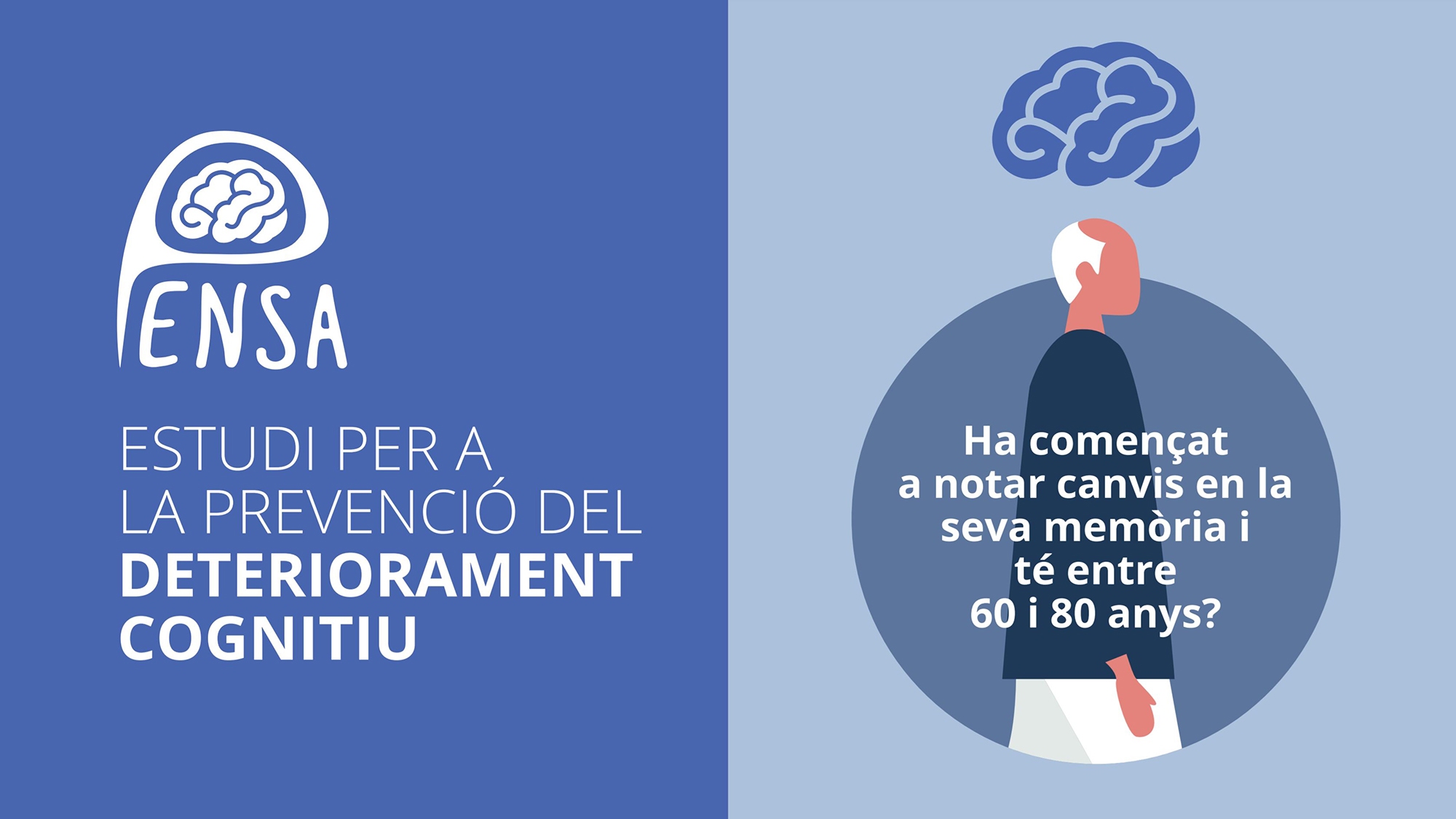It is expected that, by 2040, Spain will lead the list of countries with the highest life expectancy. The downside? An increase in life expectancy is related, among others, to an increase in the number of individuals affected by neurodegenerative diseases, such as Alzheimer’s. Nowadays, it is estimated that the number of people suffering from dementia in Spain is 800,000, a number that could be multiplied by three by 2050, reaching epidemic dimensions.
In order to test whether it is possible to stop cognitive decline in stages prior to the onset of dementia, researchers from the Hospital del Mar Medical Research Institute (IMIM), led by Rafael de la Torre, and the Barcelona Beta Brain Research Center (BBRC) have promoted the PENSA Project (Prevention of cognitive decline in ApoE4 carriers with Subjective Cognitive Decline after EGCG and a multimodal intervention). Currently, the study is in the recruitment phase, and the selected participants must meet the following characteristics:
- Being between 60 and 80 years old.
- Being in good physical condition to perform tests.
- Perceive some memory problems that they were previously not noticed.
- Preferably, living in Barcelona to attend the face-to-face visits scheduled during the study.
The 200 selected individuals will undergo a prevention clinical trial during a whole year, which will consist:
- on the one hand, on a change in their life habits (Mediterranean diet, physical exercise and cognitive training)
- on the other hand, on the intake of a green tea component that has already demonstrated to have positive effects on the cognitive function of people with Down Syndrome: epigallocatechin gallate (EGCG).
In order to study and test the evolution of participants during the clinical trial, the PENSA project has received a one million dollars grant from the Alzheimer’s Association of the US, and is part of the World Wide FINGERS, a global project of primary prevention.
“In Alzheimer’s, we need to think about primary prevention. That is, preventing people from needing treatment. With the PENSA Study we want to achieve this: slowing the progression of cognitive impairment towards a future neurodegenerative disease”
Rafael de la Torre (IMIM)
We talked to the IMIM researcher and PENSA Study coordinator, Rafael de la Torre. In the following video (in Catalan), he explains the importance of taking part of this pilot test.







